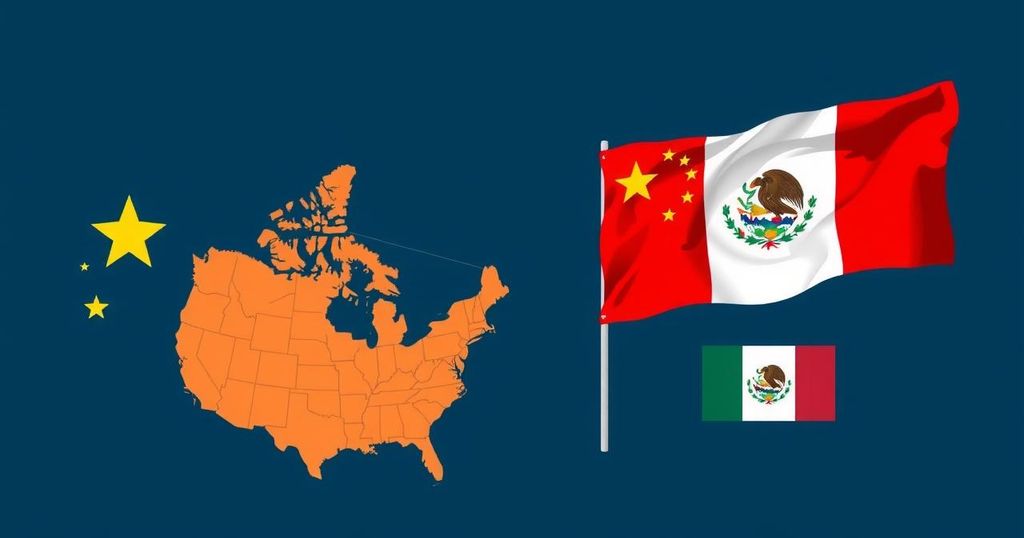Trump Proposes Higher Tariffs Targeting China, Canada, and Mexico

President-elect Donald Trump has proposed a 10% tariff on Chinese goods and a 25% tariff on products from Canada and Mexico, aiming to address drug trafficking and immigration issues. These tariffs may remain in effect until corresponding action is taken by these countries. Trump’s stance aligns with his ‘America First’ policy, underlining the connection between trade and national security.
President-elect Donald Trump announced plans to impose significant tariffs on imports from China, Canada, and Mexico, citing efforts to address the influx of drugs and illegal immigration. Specifically, he has proposed a 10 percent tariff on Chinese products and a 25 percent tariff on goods from Canada and Mexico. Trump indicated that these tariffs would remain in place until these countries take serious action to curb drug trafficking and halt illegal border crossings. His statements reflect a stringent stance towards trade relations, tying them directly to national security and immigration issues. During his campaign, Trump vowed to implement higher tariffs as part of his agenda to uphold his ‘America First’ policy, suggesting a substantial economic impact if these measures are enacted. Financial experts, such as billionaire Bill Ackman, have expressed concerns regarding the implications of these tariffs and their potential use as leverage in foreign policy decisions.
The recent announcement regarding tariffs by President-elect Donald Trump reflects a broader strategy to combat drug trafficking and immigration issues linked to neighboring countries. China has been identified as a primary source of fentanyl, a potent opioid contributing to the opioid crisis in the United States. Concurrently, Mexico has been recognized for its role in facilitating illegal immigration and drug smuggling across the U.S.-Mexico border. The proposed tariffs serve to enhance Trump’s economic and political objectives by leveraging trade policies as a mechanism for influencing foreign cooperation.
In summary, Donald Trump’s proposed tariffs signify a strategic attempt to address two pressing issues: the flow of illegal drugs, particularly fentanyl, and the challenge of unauthorized immigration from Mexico and Canada. By linking trade policies to these critical concerns, Trump aims to enforce his administration’s priorities, potentially altering U.S. economic relations with these nations. These developments underscore the intricate relationship between trade and national security in contemporary policy discourse.
Original Source: www.newsweek.com








